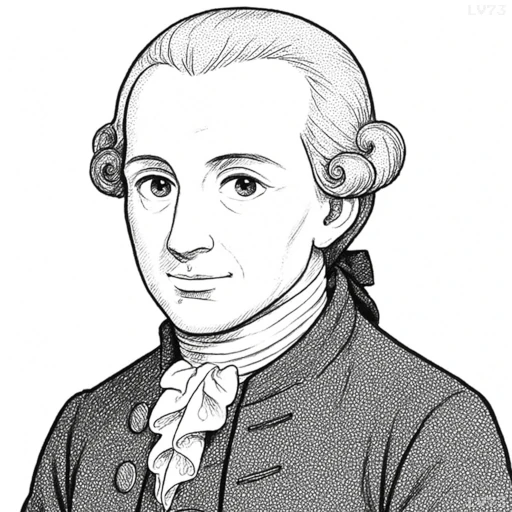“Ingratitude is the essence of vileness.”

- April 22, 1724 – February 12, 1804
- Born in Germany (East Prussia)
- Philosopher
table of contents
Quote
“Ingratitude is the essence of vileness.”
Explanation
In this quote, Immanuel Kant emphasizes that ingratitude—the failure to acknowledge or appreciate the benefits one has received—is a fundamental moral failing. Kant believes that gratitude is a core virtue that underpins ethical behavior, as it reflects respect and recognition of others’ efforts or kindness. To be ungrateful is, in Kant’s view, to diminish the moral dignity of the person committing the act, as it shows a lack of appreciation for the moral actions of others. Ingratitude not only harms relationships but also reflects a deeper moral corruption because it disregards the moral obligations we have to others. In this sense, ingratitude is more than just a personal failing; it is a moral breach that reveals a person’s disregard for the moral values of respect and mutual recognition.
In the context of modern relationships—whether personal, professional, or societal—Kant’s statement serves as a reminder of the importance of acknowledging others’ contributions. Whether it’s showing gratitude to those who support us or recognizing the efforts of caregivers, employees, or even society at large, ingratitude can have a corrosive effect. In the world today, where individualism and self-interest can often overshadow the need for collective appreciation, gratitude serves as a crucial antidote. It fosters a culture of respect and mutual understanding, both in interpersonal interactions and within broader societal frameworks, like leadership and community building.
Historically, Kant’s view reflects the moral philosophy of the Enlightenment, which emphasized reason, moral duty, and reciprocal relationships based on mutual respect and understanding. In an age when traditional feudal or patriarchal structures often dominated, Kant’s emphasis on gratitude as a moral duty spoke to a vision of a society where individuals recognized their interdependence and the moral significance of their relationships. His argument aligns with later ideas about reciprocity in social contracts and moral philosophy, which suggest that acknowledging others’ contributions is vital for a just and functioning society. Today, Kant’s view of ingratitude as vileness serves as a cautionary principle about the ethical importance of maintaining humility and appreciation in our interactions with others.
Would you like to share your impressions or related stories about this quote in the comments section?


